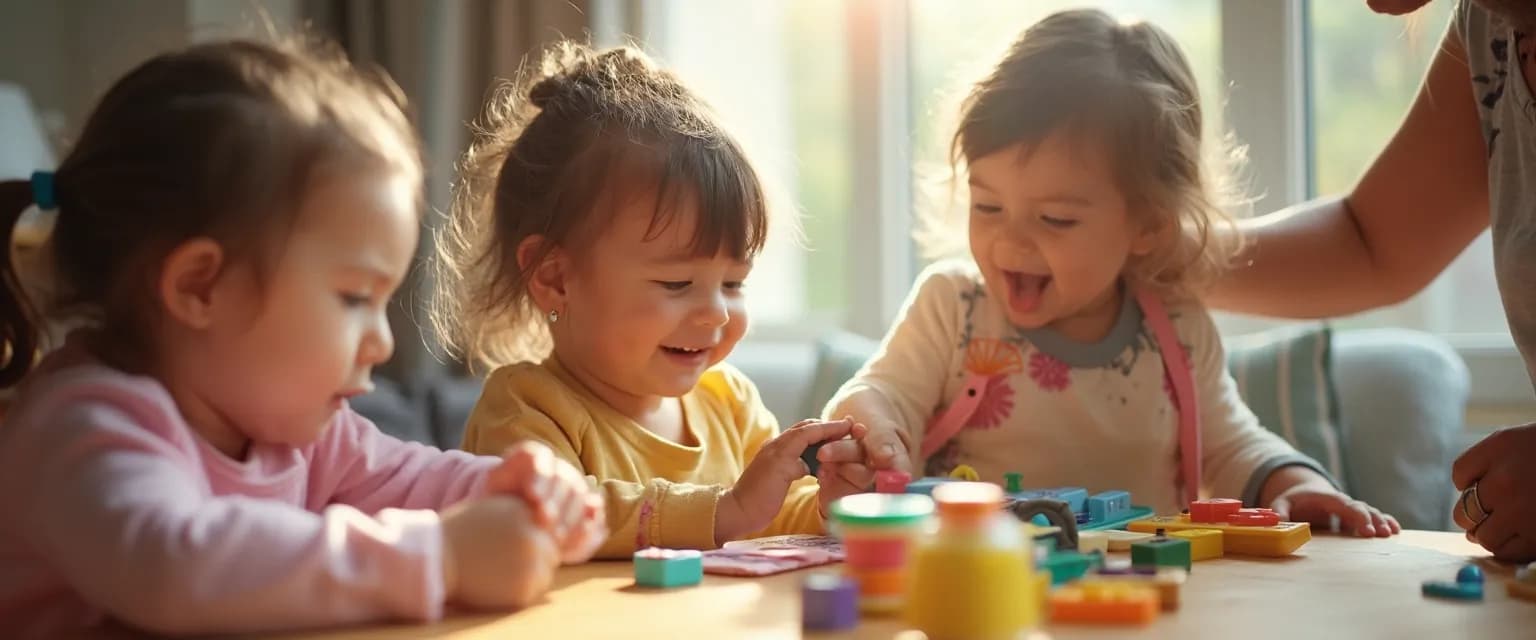7 Playful Activities for Fostering Emotional Intelligence in Toddlers
Ever noticed how your toddler's tiny face scrunches up in frustration one moment, then beams with joy the next? These emotional waves aren't just adorable—they're golden opportunities for fostering emotional intelligence during these formative years. When little ones learn to recognize and navigate their feelings early on, they're building skills that will serve them throughout life. The beauty of fostering emotional intelligence in toddlers is that it doesn't require formal lessons or complicated techniques—just playful, everyday interactions that feel like fun rather than learning.
Toddlers are natural emotional sponges, absorbing cues about feelings from everyone around them. By intentionally weaving emotional awareness activities into playtime, you're helping them develop crucial skills that will impact their future relationships, academic success, and even mental health. These seven simple activities turn ordinary moments into opportunities for emotional growth—no special equipment required!
Ready to discover how playful moments can become powerful teaching tools for fostering emotional intelligence? Let's explore activities that feel like games but build essential life skills.
Playful Foundations for Fostering Emotional Intelligence
The most effective strategies for fostering emotional intelligence blend seamlessly into your toddler's natural desire to play. These first three activities create a foundation for emotional awareness through games that delight while they teach.
1. Emotion Charades
Turn facial expressions into a game by taking turns making "happy," "sad," "excited," or "surprised" faces. Exaggerate your expressions to help your toddler connect big physical cues with emotional concepts. When they correctly identify an emotion, celebrate with enthusiasm! This simple activity builds their emotional vocabulary while creating joyful connections.
2. Feelings Storytime
Books featuring characters experiencing different emotions provide perfect conversation starters for fostering emotional intelligence. While reading, pause to point out how characters feel: "Look at the bear's face—he looks worried! Have you ever felt worried?" This helps toddlers connect story situations with their own experiences and builds emotional recognition skills.
3. Emotion Color Matching
Create a simple game matching colors to feelings—perhaps blue for sad, yellow for happy, red for angry. Ask your toddler to find objects matching how they feel, or sort colored blocks while talking about different emotions. This visual approach helps toddlers externalize and identify feelings they might not yet have words for.
Daily Routines for Fostering Emotional Intelligence
Weaving emotional intelligence activities into everyday routines creates consistent opportunities for growth without adding extra demands to busy family schedules.
4. Morning Feelings Check-in
Start the day with a simple question: "How are you feeling today?" You might offer options—"Happy? Sleepy? Excited?"—and demonstrate the expressions yourself. This quick ritual normalizes talking about emotions and helps toddlers recognize their feelings first thing in the morning.
5. Calm-Down Corner
Create a cozy space with soft pillows, favorite stuffed animals, and perhaps a feelings poster. When big emotions arise, guide your toddler to this special area where they can safely experience feelings. This isn't time-out—it's a supportive environment for processing emotions. "Let's take some deep breaths in our calm corner" teaches self-regulation through positive association.
6. Puppet Play
Simple hand puppets or stuffed animals become powerful tools for fostering emotional intelligence when they "experience" scenarios toddlers might encounter—sharing toys, waiting turns, or feeling left out. Puppets provide emotional distance that helps toddlers process challenging situations more objectively.
7. Mirror Games
Standing before a mirror with your toddler, take turns making different emotional expressions. This activity builds self-awareness skills by connecting internal feelings with external expressions—a foundational aspect of emotional intelligence that will serve them throughout life.
Maximizing Your Impact When Fostering Emotional Intelligence
How you respond during these activities significantly influences their effectiveness. When your toddler expresses emotions during play, acknowledge their feelings without judgment: "You're feeling frustrated because the block tower fell. That's okay." This validation reinforces that all emotions are acceptable, while still guiding appropriate expression.
Consistency creates the greatest impact when fostering emotional intelligence. Rather than setting aside special "emotion learning time," weave these activities into daily routines—bedtime, meals, or car rides. Watch for growing signs of emotional awareness: your toddler naming their feelings unprompted, showing empathy when others are upset, or using simple strategies to calm themselves.
Remember that fostering emotional intelligence is a journey, not a destination. These playful foundations set your toddler on a path toward understanding their emotional landscape—a gift that will benefit them long after the toddler years have passed. By making emotional learning playful and natural, you're helping shape not just how they manage feelings today, but how they'll navigate relationships and challenges throughout their lives.




